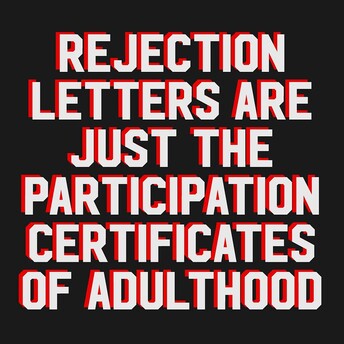 Being based in Irvine, CA and working with many high achieving students each year, I’m accustomed to having students (and often parents) pushing for highly selective colleges. After all, these students have earned all As in rigorous Honors and AP courses, 4's and 5's on AP tests, and near perfect ACT or SAT scores. One would think these students would be a shoe in for any school they apply to. But the reality is that there are often close to 100 students like that for every spot at the most selective schools. In fact, with test optional policies due to Covid this year, applications skyrocketed at Ivy League colleges: Harvard up 42% Columbia up 51% Dartmouth up 33% Yale and Penn up 33% Brown up 27% Princeton up 15% And these increases were not just limited to the Ivys. Other selective colleges saw similar upticks: Duke up 24% Rice up 26% Amherst up 43% Emory up 19% Colby up 13% Tufts up 35% And so on . . . Since the majority of students who apply have GPAs well over 4.0, are involved in extracurricular activities, have shown leadership, are engaged in meaningful community service, etc., the question becomes: WHO GETS IN? The ANSWER is that students who are competitive for these schools typically have all that is listed above AND have some HOOK that makes them stand out. It could be any of the following: *Recruited athlete *Talent (music, performing arts, visual arts, etc.) Selective schools often accept an optional arts supplement for students to showcase a talent. These supplements are typically sent to the faculty of that arts department for review, and colleges caution that students must be exceptional for this supplement to have an impact. *National/International Award Winner (Robotics, Debate, Poetry, Foreign Language, Math, etc.) *Entrepreneurial Accomplishment Created something that has produced results and elevated the community or a particular group within the community. The student has started a foundation or company, created a product, jump started a social justice movement, etc. *Exceptional Intellect Student has filed and received a patent, created an original code, designed a successful app, written an and published an award-winning book, etc. *Endured Tremendous Hardship & Persevered Student experienced homelessness, suffered the loss of parents, faced an extraordinary medical challenge, came from a war-torn country, etc. Most important for this to have an impact is that the student experienced this hardship and overcame it with success. *First Generation Student: Student is the first in their family to go to college *Connections Legacy, Large Donor, Child of Politician/Celebrity, etc. WITHOUT one or more of these hooks, the chances are slim to none. That is just the reality, and I seek to be transparent with my clients. I have these conversations every year, and I spend a great deal of time encouraging students/parents to be open to and excited about the favorable and target schools on their list. After all, those are the colleges they are most likely to get into. Applying to more reach schools doesn't make their chances better. Since most of my students intend to pursue graduate school, I believe that finding the school where they can be a big fish will ultimately make them most competitive for those grad schools. Grad schools look for students who engage in undergraduate research, pursue internships, create meaningful relationships with professors. Highly motivated students can seek and capitalize on those opportunities in a less competitive environment. Malcolm Gladwell addresses this very point in a Google talk he gave back in 2013: https://www.youtube.com/watch?v=3UEwbRWFZVc I know how disheartening this reality can be. After all, these students applying to selective schools have done everything right. They have earned excellent grades, taken rigorous classes, got involved in meaningful activities, shown leadership, and on and on. I also know from experience that regardless of the odds, students will still pursue these selective schools and will most likely receive much rejection. And for many, this will be the first time they have experienced rejection. Given that, it's important to note that how students and parents react to this rejection can ultimately shape how successful that student's college experience will be. Lori Gottleib’s 2019 article in The Atlantic offers some excellent insight and suggestions as to how parents should react when their child doesn’t get into their dream school. https://bit.ly/39UIg3U It is well worth the read, as she offers guidance for parents to give their kids key messages that have "the potential to either prepare them for adulthood or hold them back.” |
